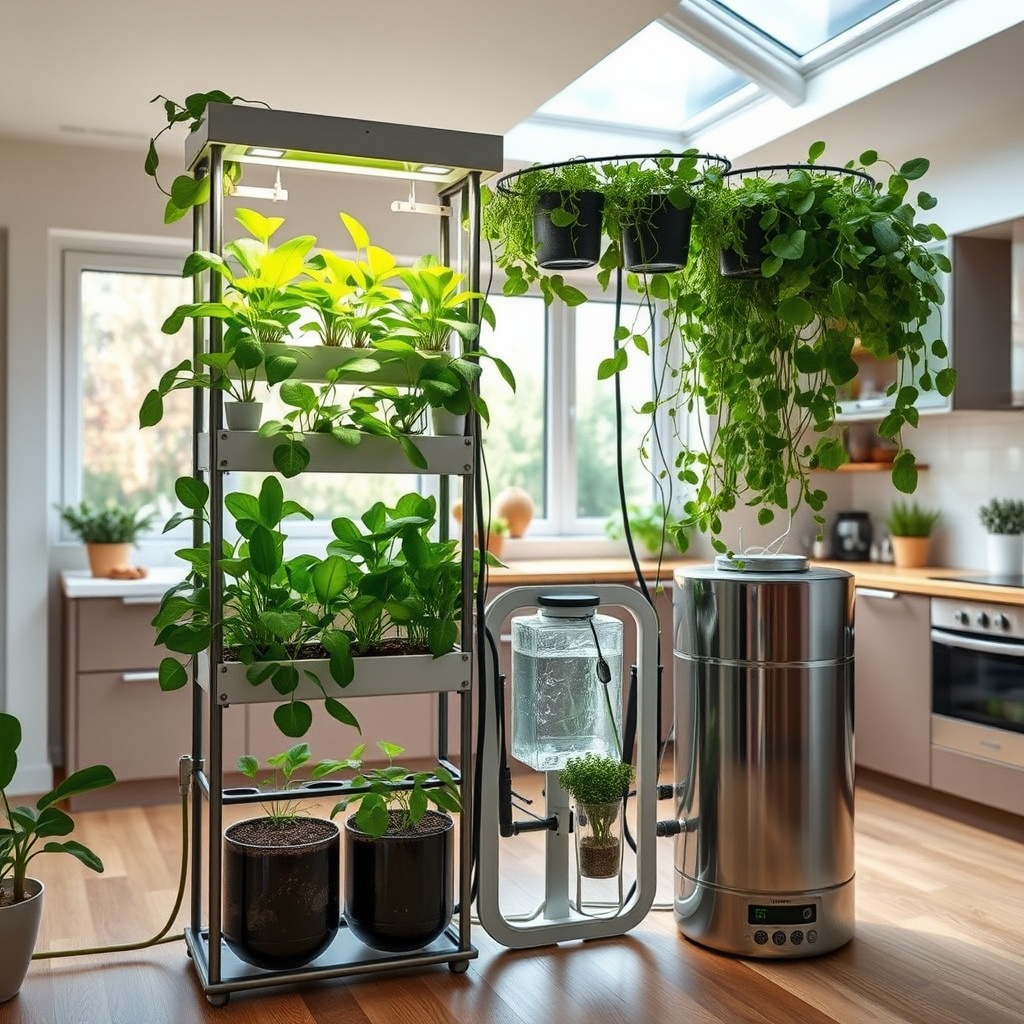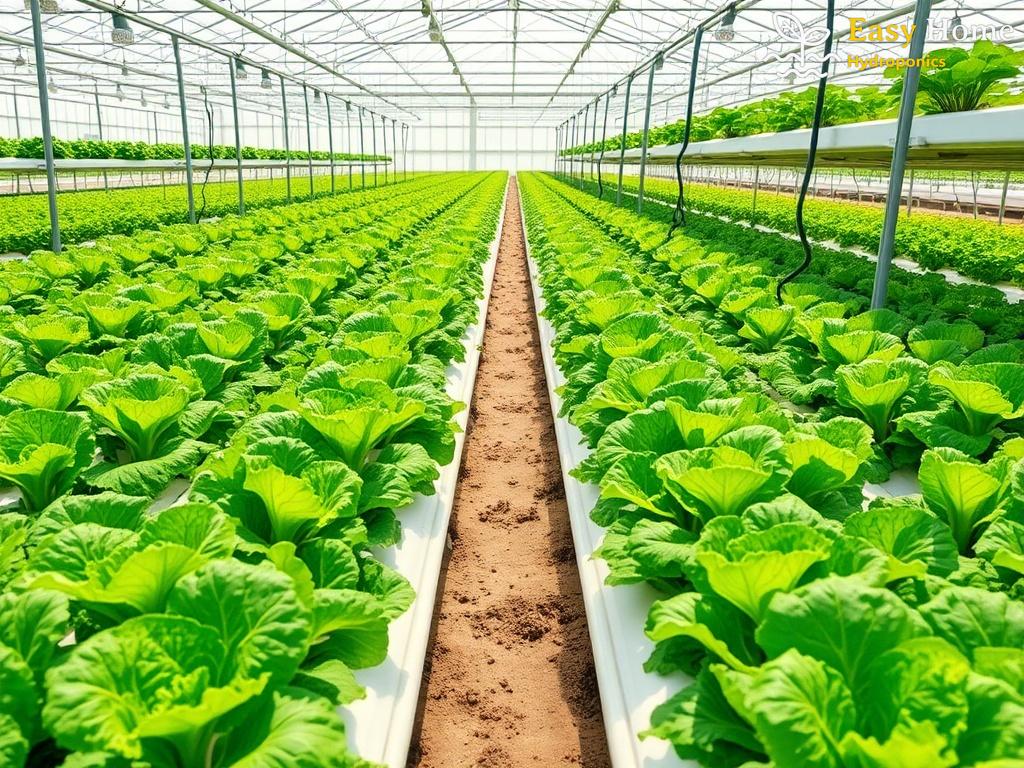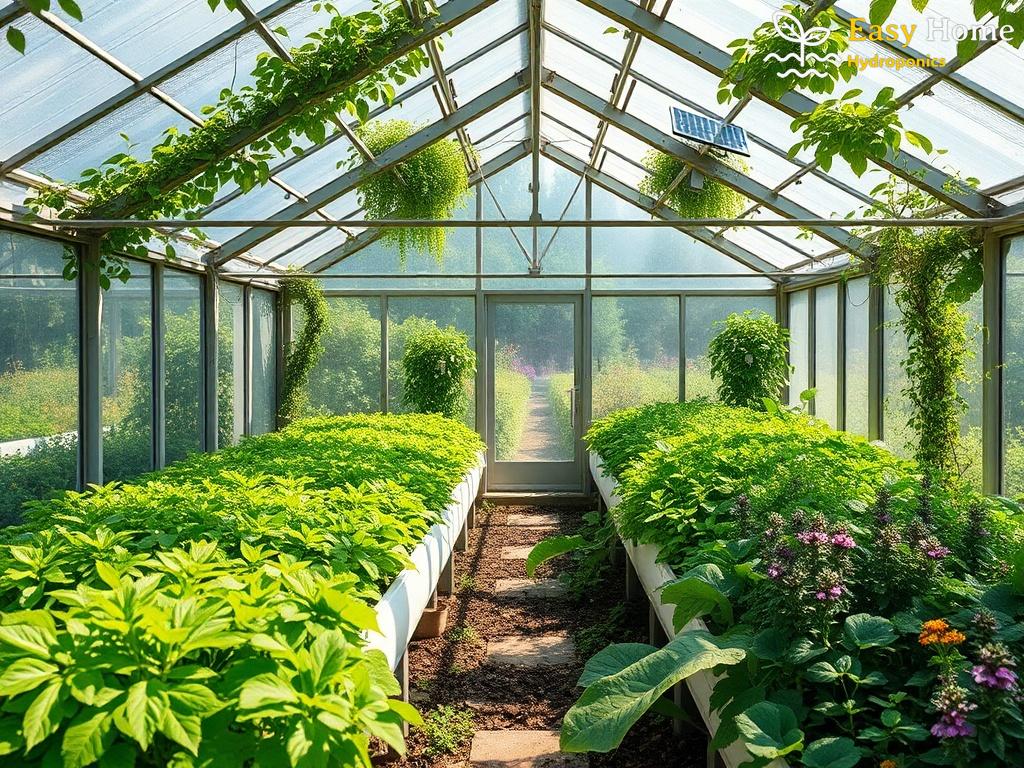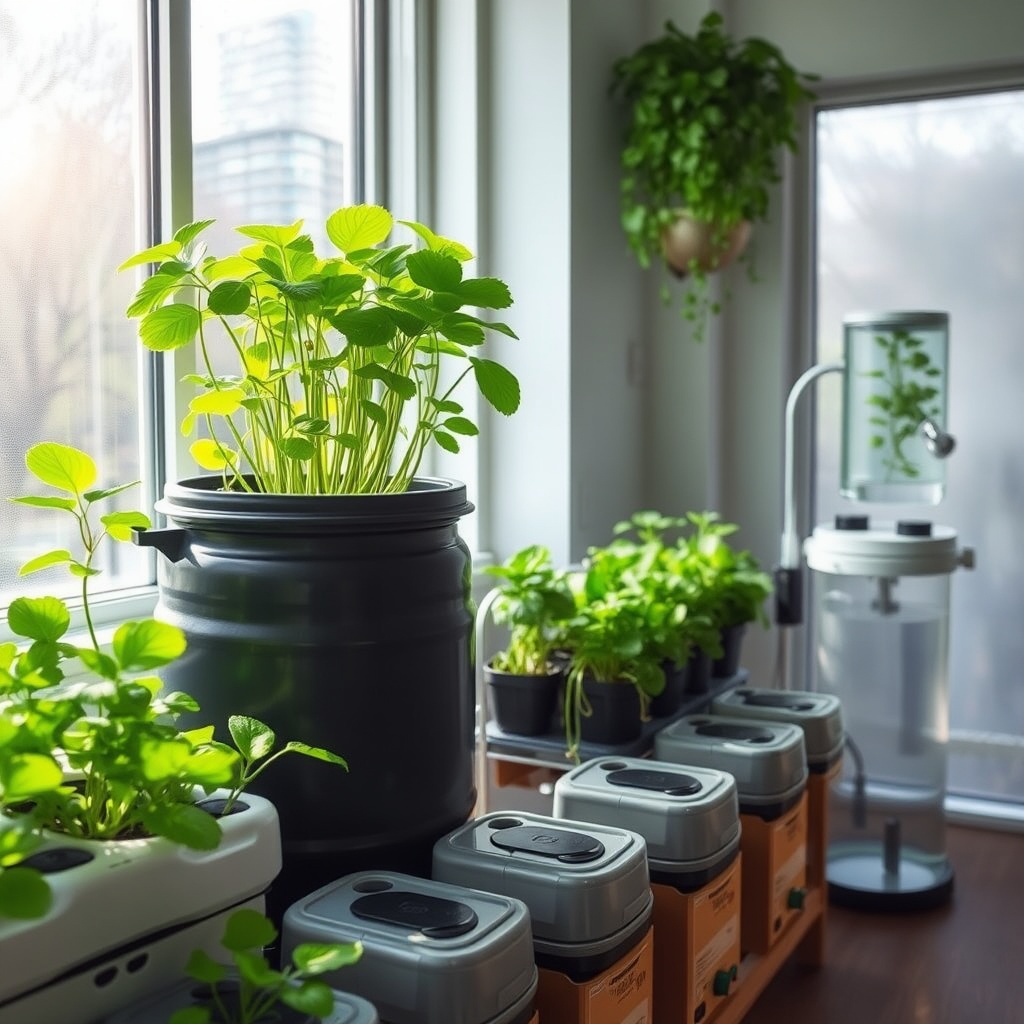Transforming Waste into Resources
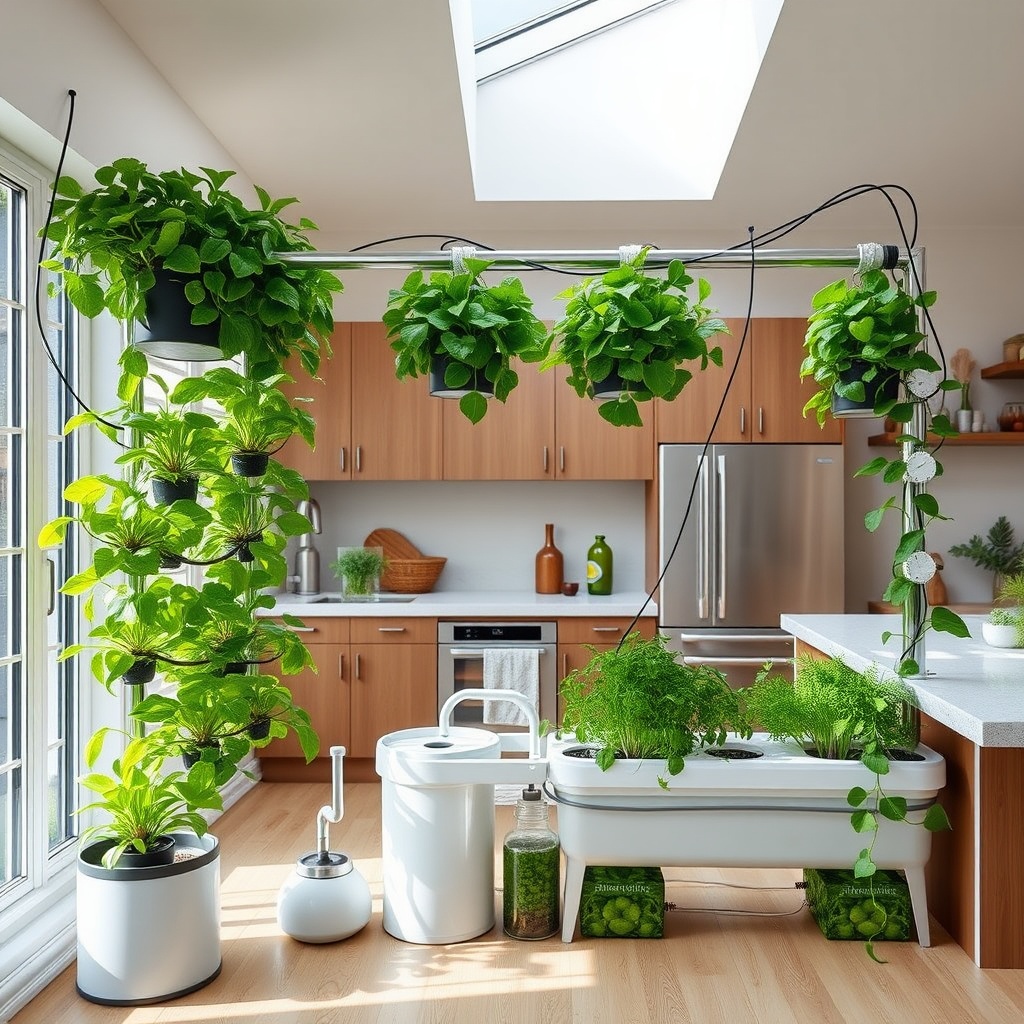
The concept of circular economy is revolutionizing the way we think about sustainability, especially in the realm of home gardening and hydroponics. By optimizing resources and minimizing waste, we can create a closed-loop system that not only supports our plants but also benefits the environment. Embracing this approach in home hydroponics can lead to a more efficient and eco-friendly way of growing food.
One of the most significant advantages of integrating circular economy principles into hydroponics is the ability to utilize household waste as a resource. For instance, kitchen scraps such as vegetable peels and coffee grounds can be composted and used as nutrient-rich organic matter. This not only reduces waste sent to landfills but also enriches your hydroponic system with essential nutrients, creating a sustainable cycle.
Creating a Self-Sustaining Ecosystem
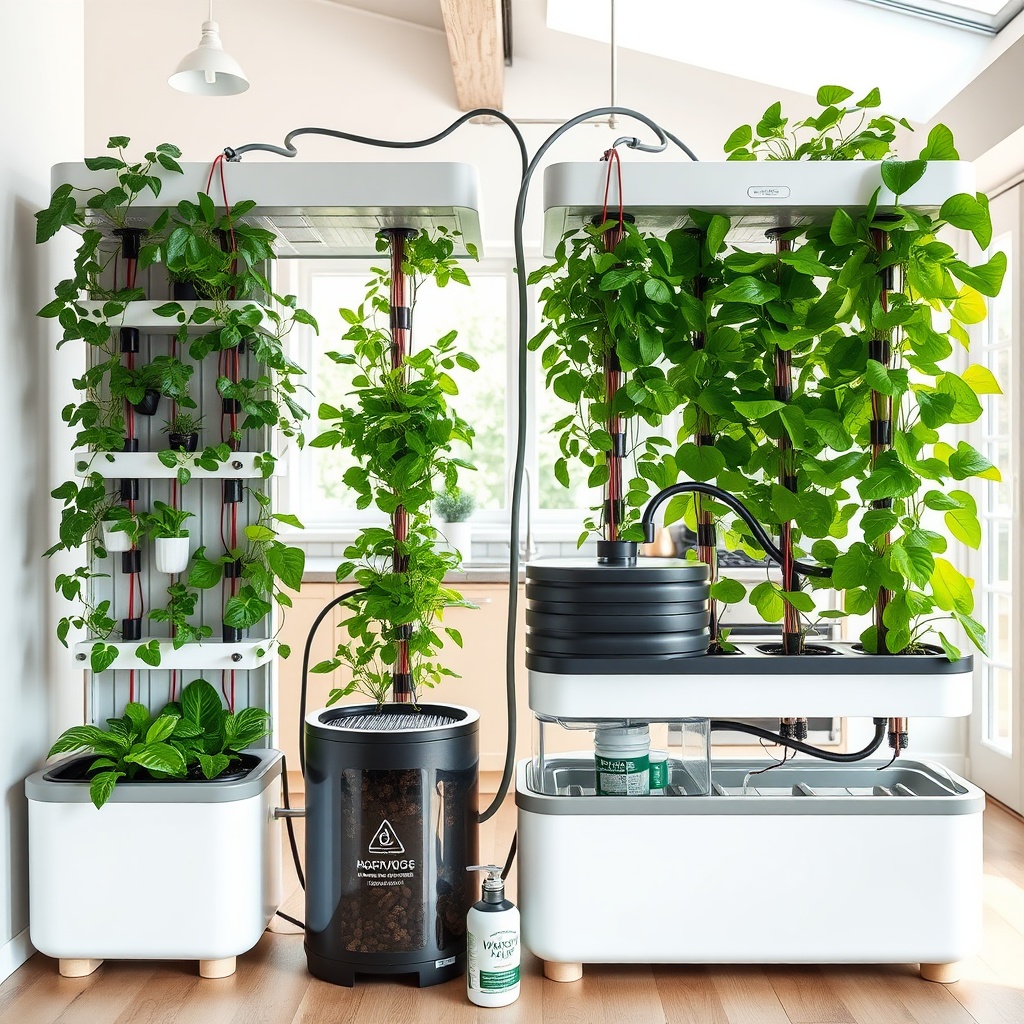
Imagine a small ecosystem right in your home, where every component works in harmony to support plant growth while reducing the reliance on external resources. By designing a self-sustaining hydroponic system, we can utilize rainwater collection, solar energy, and even fish waste to nurture our plants. This synergy not only promotes biodiversity but also enhances the overall efficiency of our gardening efforts.
Below is a list of components that can be integrated into a circular home hydroponics system:
- Rainwater Harvesting: Collecting rainwater to irrigate your hydroponics reduces dependence on municipal water sources.
- Solar Panels: Utilizing solar energy to power pumps and lights can significantly lower your energy footprint.
- Fish Tanks: Incorporating aquaponics allows fish waste to fertilize plants, creating a balanced ecosystem.
- Composting: Recycling organic waste into compost provides a sustainable nutrient source for your plants.
- Beneficial Insects: Introducing natural predators can help control pests without the need for chemical interventions.
Empowering Communities through Education
Implementing circular economy concepts in home hydroponics is not just about personal gain; it’s about inspiring communities to adopt sustainable practices. By educating others about the benefits of hydroponics and circular economy principles, we can foster a culture of sustainability that extends beyond our individual homes.
Workshops, community gardens, and local meet-ups can serve as platforms for sharing knowledge and resources. The more we collaborate and innovate, the more we can spread the message of sustainability. Empowering others to take action in their own homes reinforces the idea that small changes can lead to significant impacts.

